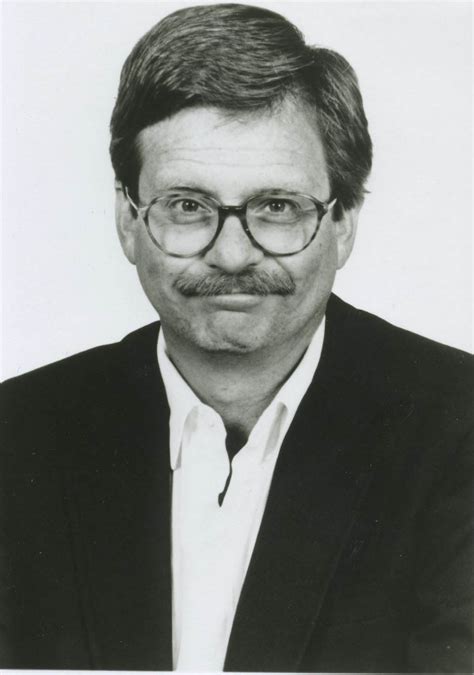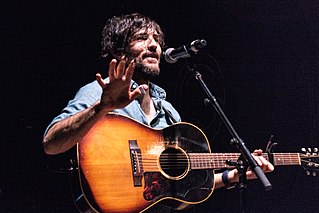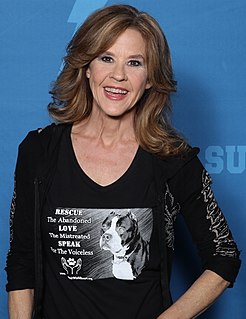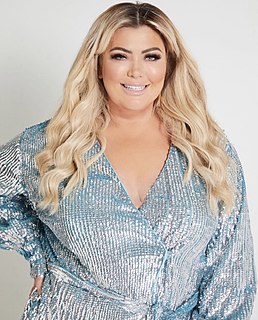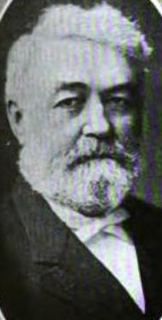A Quote by Richard P. Feynman
If I get stuck, I look at a book that tells me how someone else did it. I turn the pages, and then I say, 'Oh, I forgot that bit,' then close the book and carry on. Finally, after you've figured out how to do it, you read how they did it and find out how dumb your solution is and how much more clever and efficient theirs is!
Related Quotes
I get letters from two kinds of readers. History buffs, who love to read history and biography for fun, and then kids who want to be writers but who rarely come out and say so in their letters. You can tell by the questions they ask - How did you get your ?rst book published? How long do you spend on a book? So I guess those are the readers that I'm writing for - kids who enjoy that kind of book, because they're interested in history, in other people's lives, in what has happened in the world. I believe that they're the ones who are going to be the movers and shakers.
I didn't want to teach my kid how to read, so I used to read to him at night and close the book at the most interesting part. He said, “What happened then, daddy?” I said, “If you learn to read, you can find out. I'm too tired to read. I'll read to you tomorrow.” So, he had a need to want to learn how to read. Don't teach children how to read. Don't teach them mathematics. Give them a reason to want it. In school, they're working ass-backwards.
When you are writing a spoken word poem, the tools you're working with are your voice, your body, how it's going to sound to someone when you're saying it out loud. Which is different from when you're writing it on the page. That toolbox becomes how does this look visually on the page, how does this read among pages, how is this in relation to poems that are before it or after it. I don't think one is better or more successful than the other. You've just gotta think about "what are the tools I'm using, and how are they most effective in this form?"
With 'Free Agent Nation,' I was figuring out how to write a book along with writing the book. Now I think I've kind of, sort of figured out how to write a book a little bit better. But the process remains not that different - slow; laborious; tiny, incremental progress each day, punctuated by feelings of despair and self-loathing.
I'm fascinated by what makes up a self, how one becomes a self, how much is it an answer to others and how much is it an essence of self. We learn how to be people from other people. Then you think - what's personal freedom? Is self-creation possible? This book is dedicated to a friend of mine who really did re-create herself. I didn't do that - I stayed in the circus and am a circus performer like my parents were. I did what I was raised to do - I'm glad I did but I'm fascinated by the people who managed to do something else. I was always very curious about other people.
Women of all looks, shapes, sizes, everything, if they recognize how beautiful they are-because they all are-then they carry it that way. And you can see that. Confidence is reflected in how they walk and how they dress and how they speak and how they carry themselves. It's just amazing. And that can turn anybody's head pretty quick, especially mine.
If something doesn't turn out as planned, you will ask yourself, 'How did I create that? What was I thinking? What were my beliefs? What did I say or not say? What did I do or not do to create that result? How did I get the other person to act that way? What do I need to do differently next time to get the result I want?'
I've had people appear in my life that have helped me. I had more fun. I approached it thinking how would Jack Nicholson, "How would he do it?" So that's really what I did was I created this Gremlin character. So now people come up and they say 'Oh The Exorcist!'.. and I'm like "Did you see Repossessed?" They say either no or yes or whatever, and I say look at this, have a laugh, and then go back and look at a masterpiece.
What the meat industry figured out is that you don't need healthy animals to make a profit. Sick animals are more profitable... Factory farms calculate how close to death they can keep animals without killing them. That's the business model. How quickly they can be made to grow, how tightly they can be packed, how much or how little can they eat, how sick they can get without dying...We live in a world in which it's conventional to treat an animal like a block of wood.
Isn't it odd how much fatter a book gets when you've read it several times?" Mo had said..."As if something were left between the pages every time you read it. Feelings, thoughts, sounds, smells...and then, when you look at the book again many years later, you find yourself there, too, a slightly younger self, slightly different, as if the book had preserved you like a pressed flower...both strange and familiar.


